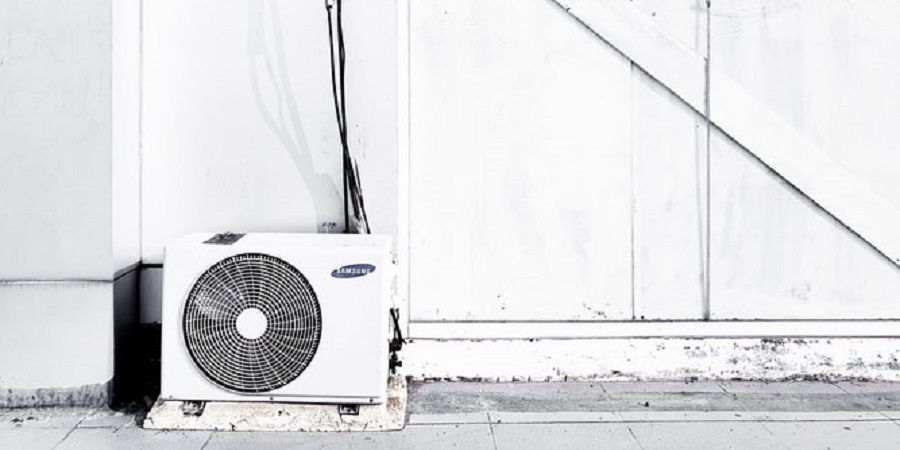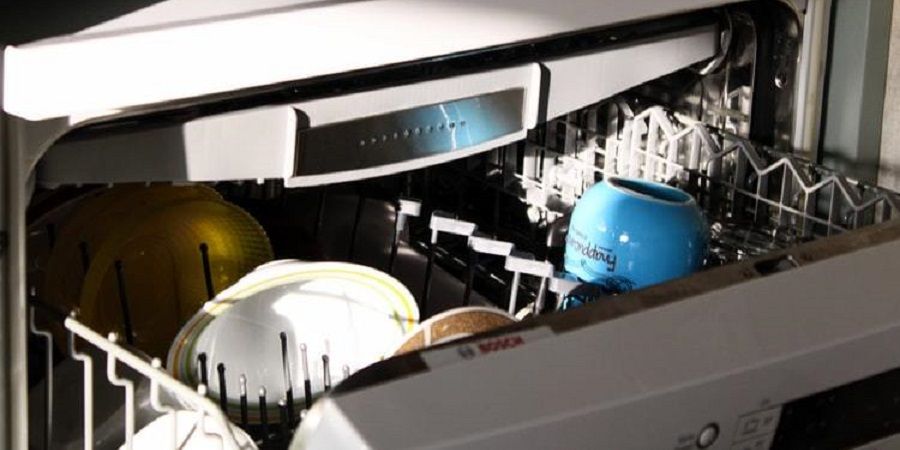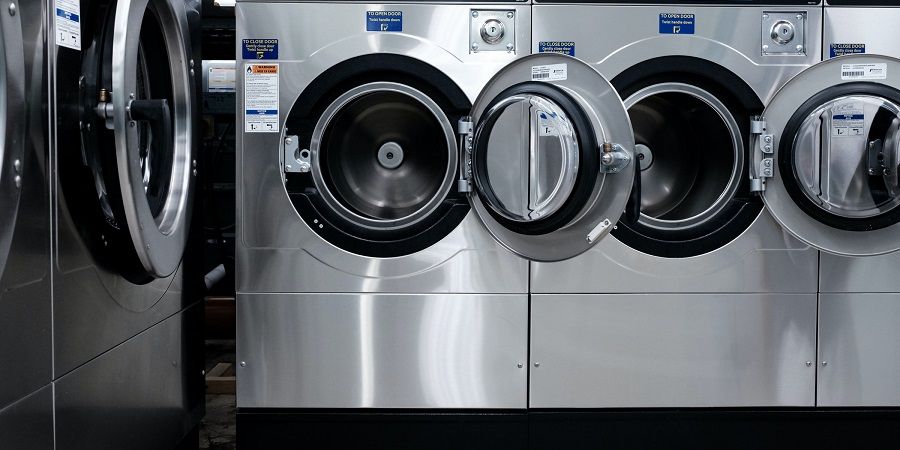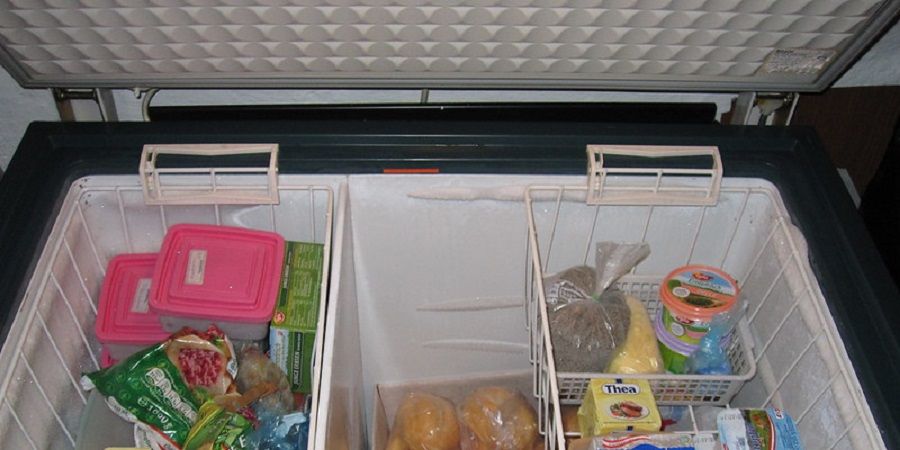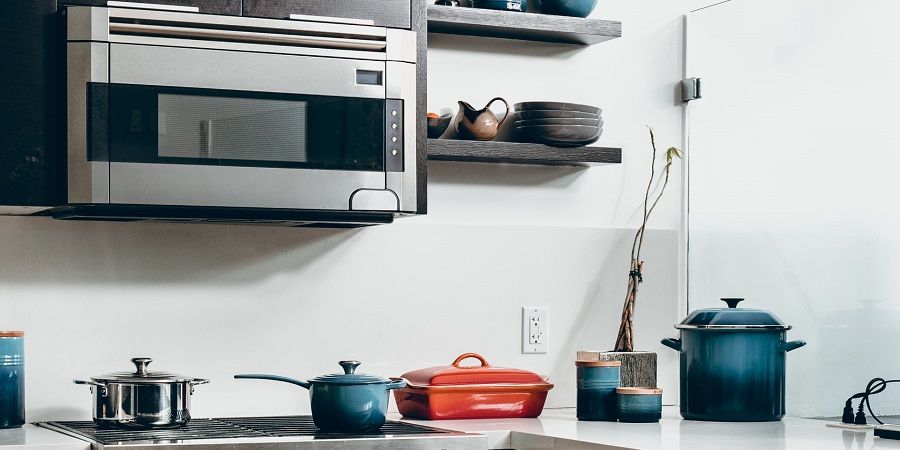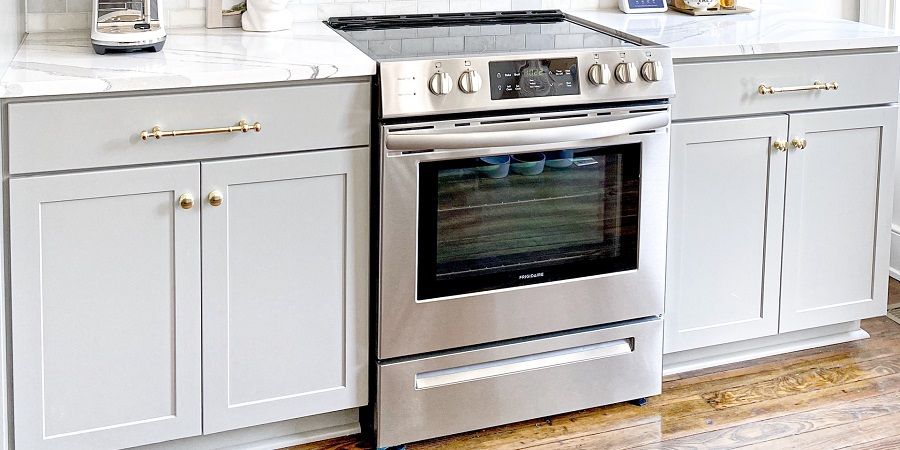Home appliances are one of those things that we buy, overuse, and never replace until it’s too late. As much as we’d like to never think of home appliance shopping again once we’ve settled into a home, unfortunately, these items don’t last forever.
When our basis for replacing an appliance is when it completely stops working, that’s basically signing up for an ill-prepared budget and hastily purchased home equipment. It’s important to have an idea of the lifespan of these key appliances, so you’ll have enough time to research and properly prepare your budget for when it’s time for a new investment.
Keep reading to learn the average lifespans of your appliances and see if it’s time to replace yours.
Backyard Boss Lists Appliance Life Expectancy of Major Household Appliances
Air Conditioner (Window and Central)
Image Credit: Zulki Jrzt via Unsplash
Average lifespan
- Central AC unit: 15 – 20 years
- Window AC unit: 10 – 25 years
Air conditioners have a wide life expectancy range due to the many technological innovations that make them last longer. Improper usage is the main factor that shortens your AC’s lifespan.
Overworking your units and failing to regularly clean them are the usual culprits when it breaks. Some signs that help you know when it’s time for an AC upgrade include slow or weak cooling performance, inaccurate or faulty components, clogged drains and filters, and if it’s suddenly blowing up your electricity bills.
Dishwasher
Image Credit: Mohammad Esmaili via Unsplash
Average lifespan: 10 years
Dishwashers can last anywhere from 8 to 15 years long but they average at a ten-year life expectancy, especially if you run it most of the week while sticking to a regular maintenance schedule.
The more you use it, the sooner your dishwasher will wear out, especially if build-up occurs due to improper cleaning. If your dishwasher breaks down, assess the damage and weigh out the pros and cons of repairing versus replacing it. Sometimes, it's wise to replace it, even before it's been with you for 10 years.
Dryer (Electric and Gas)
Image Credit: Oli Woodman via Unsplash
Average lifespan
- Electric Dryer: 14 years
- Gas Dryer: 13 years
Electric dryers are known to be more long-lasting than gas dryers, but they sit at the same lifespan. These units are quite important in running a household, so it’s crucial to be aware of their condition.
Part of extending their life cycle is making sure their components are properly cleaned, and that the duct is annually washed. When your dryer is no longer working, and it’s time for an upgrade, new models are equipped with the latest technology, to help you with energy efficiency and load sizes.
Freezer
Image Credit: Coffee Danube Still Life Photography via Flickr
Average lifespan: 16 years
Regardless of what kind of freezer you have, its lifespan will range anywhere from 12 to 20 years. It’s a necessary kitchen appliance that’s easily neglected.
Some ways that you could unknowingly be speeding up your freezer’s deterioration are if you forget to clean it, block its air vents, keep it in warm spaces, and if you make a habit of overfilling it. Luckily, signs of a freezer in need of TLC are easy to spot, such as noises or above-freezing temperatures.
Furnace (Electric and Gas)
Image Credit: Nathan Walker via Unsplash
Average lifespan
- Electric Furnace: 20 – 30 years
- Gas Furnace: 15 – 20 years
Regardless of the various advantages and disadvantages of electric and gas furnaces, it’s a fact that electric furnaces tend to last longer, known to live a 30-year lifespan while gas furnaces max out at 20 years.
Maximize this investment by checking and regularly replacing its filters, remembering not to overpower it with unnecessary use, and having it undergo annual maintenance. Careful hands and preventive measures are all you need to make sure your furnace investment doesn’t go to waste.
Garbage Disposal
Image Credit: Elevate via Unsplash
Average lifespan: 10 years
Garbage disposals have a relatively short life span, averaging at 10 years. Although it's difficult to see when you need a garbage disposal update, it's not impossible.
Some sure-fire signs to watch out for include weird metal clanging noises, frequent clogging, unpleasant odors, and water leakage. When you notice any of these, get it checked as soon as you can to help you prepare for any possible repairs.
Gutters (Galvanized Steel, Aluminium and Copper)
Image Credit: Rūta Celma via Unsplash
Average lifespan
- Galvanized Steel and Aluminium: 20 years
- Copper: 50 years
Galvanized and aluminum gutters can last more than a couple of decades with proper and regular maintenance, but if you don't have enough time to maintain home gutters, you'll benefit from installing gutter guards to minimize dirt, such as leaves, from clogging gutters. Climate can also wreak havoc on gutter systems especially if you experience bitter cold weather. To prevent ice from jamming your gutter, installing heated gutters may solve the problem.
The warning signs of gutter damage include:
- Overflowing water due to clogged gutters or not enough water holding capacity
- Broken fasteners
- Pest and mold infestation due to saggy gutters
- Leaks and dents
- Rust
Microwave
Image Credit: Le Creuset via Unsplash
Average lifespan: 9 years
Microwaves have one of the shortest life expectancies in the kitchen appliance realm, on average needing an upgrade every nine years. Since most homes get a lot of mileage out of a single microwave, people tend to be more aware of when it’s time for a new unit.
Some obvious signs of a microwave nearing the end of its life are unpleasant odors, faulty keypads, and chipped or damaged parts. Even if your old microwave still works like a dream, upgrading it after a decade or so to a newer, more energy-efficient model, could save you some money in the long run.
Range (Electric and Gas)
Image Credit: JOSBRA design via Unsplash
Average lifespan
- Cooktop: 14 years
- Electric Range: 13 years
- Gas Range: 15 years
Whether you use a cooktop, an electric range, or a gas stove, these cooking appliances generally last somewhere around 13 to 15 years.
These items are subject to a lot of heat, grease, and everything else involved in whipping up a delicious meal. Despite being used so often, many forget to do regular maintenance on it which can lead to more expenses and fire hazards.
Simply remembering to always clean the stovetop with a mild soap, replace its filter, and subjecting it to a deep clean now and then will help prevent many problems commonly faced by outdated ranges.
Range Hood
Image Credit: Le Creuset via Unsplash
Average lifespan: 14 years
Range hoods are another important part of your cooking setup, providing ventilation while you’re busy in the kitchen.
They average at a 14-years lifespan but taking great care of kitchen hoods can have them last up to 19 years long. These are amazingly durable and could even help increase the value of your home. You can keep it in top condition through proper maintenance and regularly checking its components.
Refrigerator (Standard and Compact)
Image Credit: Alex Qian via Pexels
Average lifespan
- Standard Refrigerator: 14 years
- Compact Refrigerator: 8 years
Your standard kitchen refrigerator can last anywhere from 10 to 18 years long but its average life expectancy for most homeowners is 14 years. Compact fridges have a much shorter life span, ranging between 4 to 12 years long and averaging at 8 years.
One of the biggest things that can speed up your fridge’s deterioration is not giving it room to breathe. When back-ventilating refrigerators aren't given space to circulate air, it overworks itself and breaks down quickly. Other contributors that could also negatively affect your fridge are dusty condenser coils, unleveled platforms, and broken door seals.
Smoke Detector
Image Credit: Tumi-1983 via Wikipedia
Average lifespan: 8 – 10 years
Smoke detectors are, hopefully, hardly ever felt in the house but are crucial for home safety. It’s best to replace these items when it's nearing a decade with you, to ensure that you’re being kept safe by the latest smoke detecting technology.
Since it makes itself known on an emergency-only basis, it’s important to have monthly alarm tests, just to make sure everything is working well. It's also good to include this in your vacuum routine, to prevent dust from clogging it. If your alarm is battery powered, keep an extra battery set in handy for when it runs out!
Washing Machine
Image Credit: Antonio_Cansino via Pixabay
Average lifespan: 11 years
Washing machines are another home appliance that often doesn’t get regular cleaning and maintenance. It can last homeowners anywhere from 7 to 13 years in their possession but averages around an 11-year lifespan.
This time frame depends on the machine’s design as well as how it’s been maintained through the years. If it starts to work less efficiently and you’ve had it for almost a decade, sometimes repairing it only to last you a few more years could be more costly than replacing it with a new model.
Water Heater (Gas and Electric)
Image Credit: Max Vakhtbovych via Pexels
Average lifespan
- Gas Water Heater: 10 years
- Electric Water Heater: 11 years
Nothing beats unwinding after a long day with calming hot water. It’s something we all rely on quite heavily, especially during the cold months. This makes it just as important to ensure that your water heater is in top condition.
If your water isn’t heating up as quickly as before or you hear odd noises while it operates, it’s best to have it checked ASAP. Any signs of rust in the water or of moisture around the heater show different issues that might require replacing your water weather.
A Quick Look on Appliance Life Expectancy
|
Appliance |
Life Expectancy in Years |
|
Baseboard electric heat systems |
15-25 |
|
Built-in audio system |
20 |
|
Carpeting |
5-15 |
|
Cast iron sewer systems |
50-65 |
|
Chimneys, fireplaces, and brick veneers |
100+ |
|
Counters (Granite) |
40+ |
|
Counters (Laminate) |
10-20 |
|
Counters (Tile) |
50+ |
|
Counters (Wood) |
10-20 |
|
Fiberglass tub/showers |
20 |
|
Garage Door |
15-30 |
|
Garage Door Opener |
10-15 |
|
Hardboard and softwood panels |
30 |
|
Hot-Water Boiler |
10-15 |
|
Interior Paint |
5-10 |
|
Kitchen cabinets (particleboard and laminates) |
15-20 |
|
Kitchen cabinets (solid wood and plywood construction) |
20-50 |
|
Kitchen sink (modified acrylic) |
50 |
|
Roofing (Composition) |
20-25 |
|
Roofing (Tile) |
50-75 |
|
Roofing (wood shingles) |
30 |
|
Security systems |
5-10 |
|
Trash compactor |
10-20 |
|
Vinyl Floor |
10-20 |
|
Water Pump |
8-10 |
|
Water Softener |
10-15 |
|
Wood Floor (Hardwood) |
100+ |
Final Thoughts on Appliance Life Expectancy
Now that you know all about appliance life expectancies, you have an idea of which of your home appliances you should start saving up for. If you’re unsure about how old your appliances are, you can have it checked by professionals or you could simply keep a close eye on its performance and general condition.
Remember, the more you properly maintain and take care of it, the longer your investment will last in your hands!


